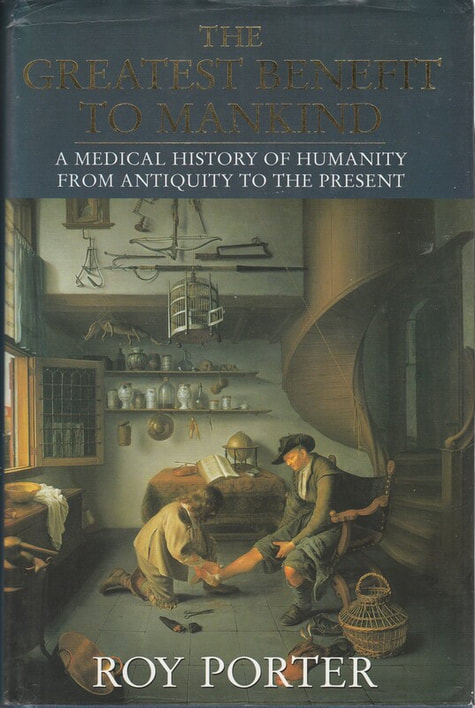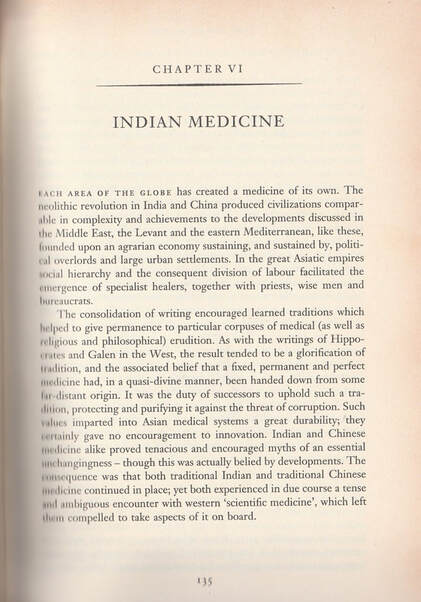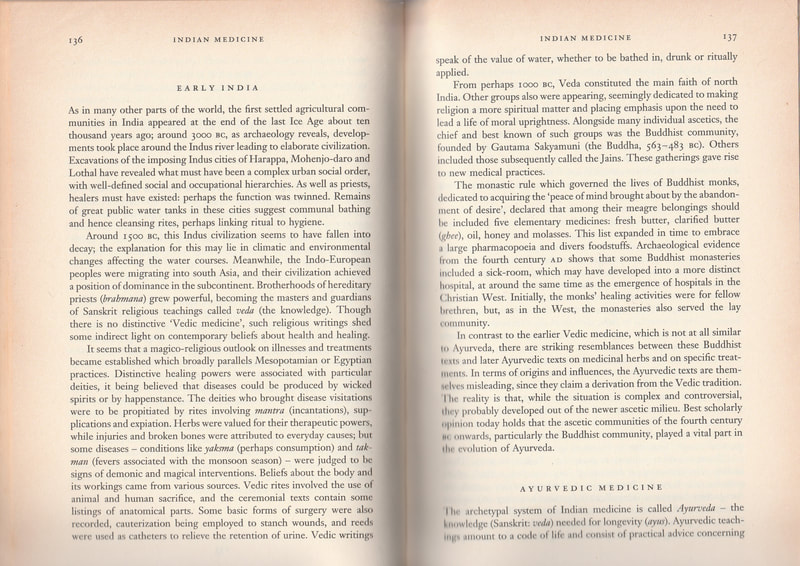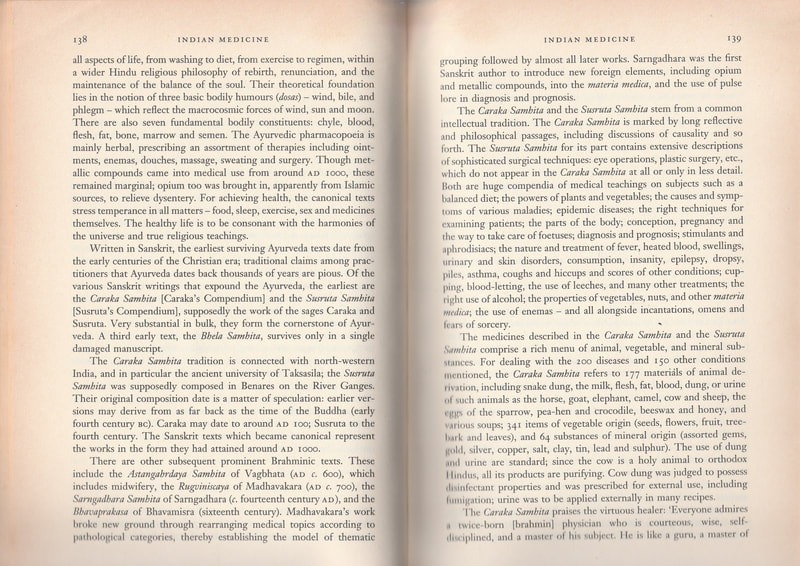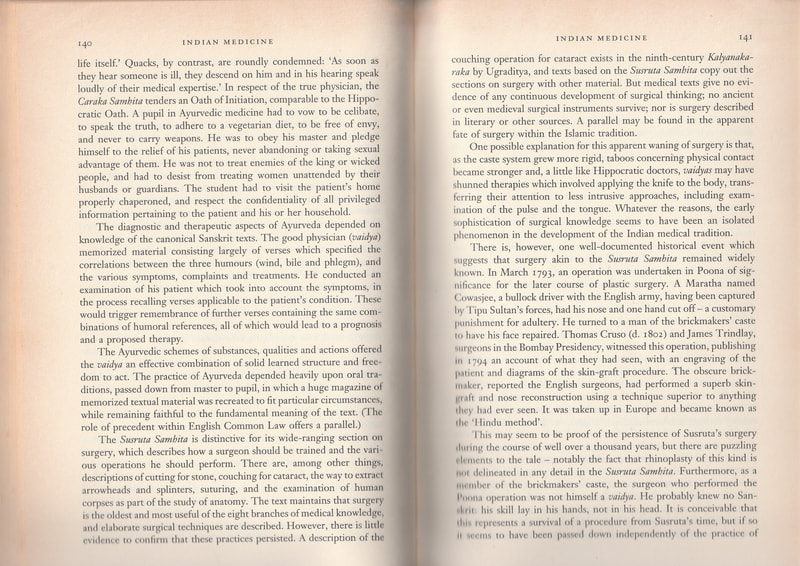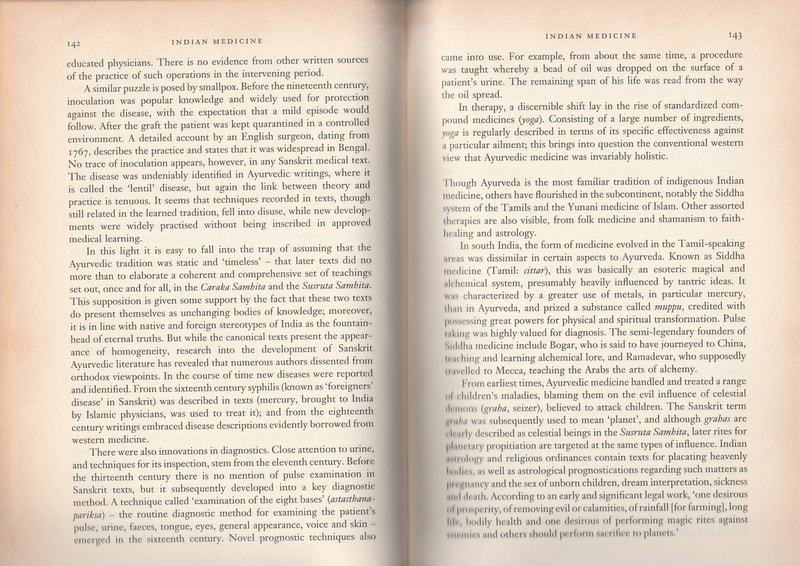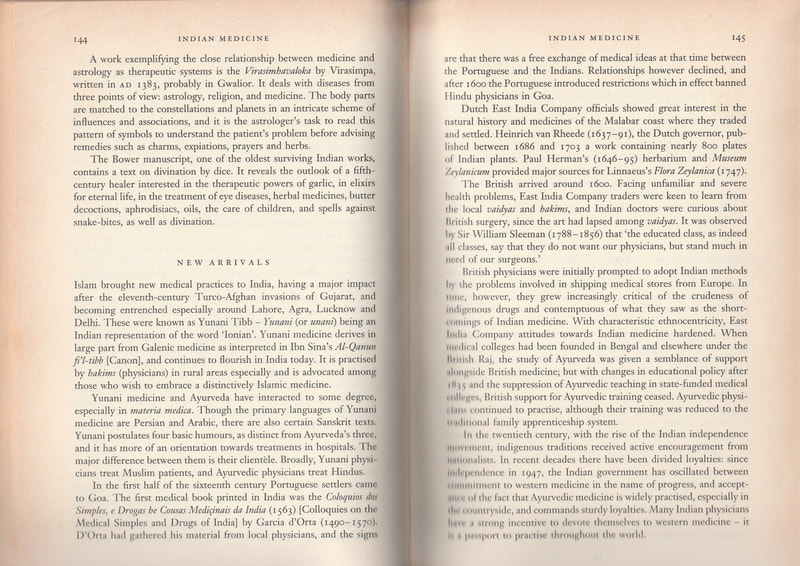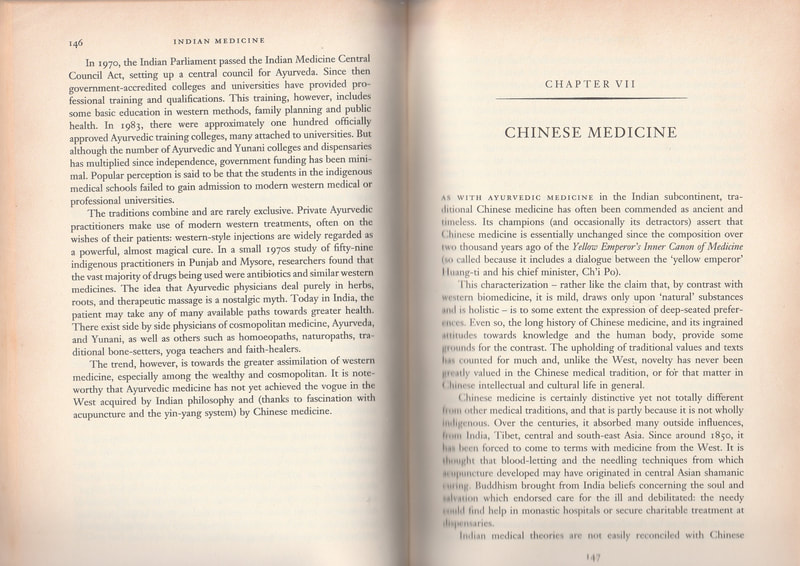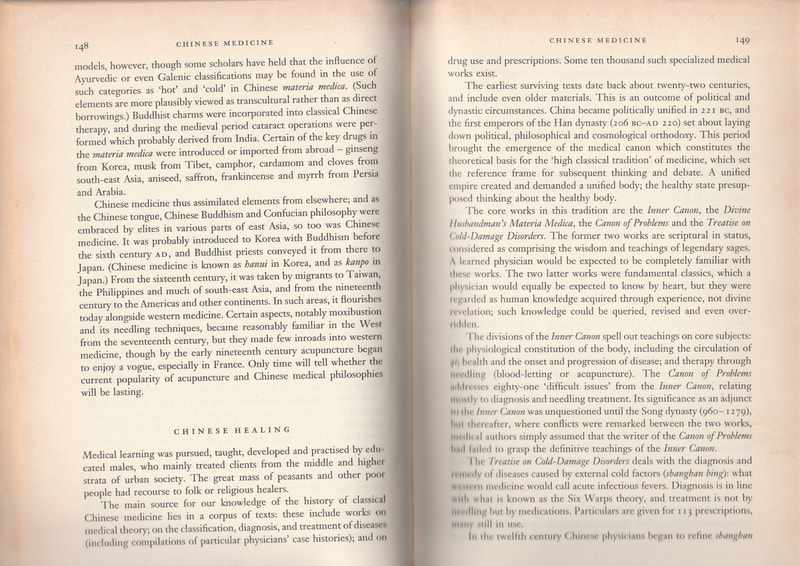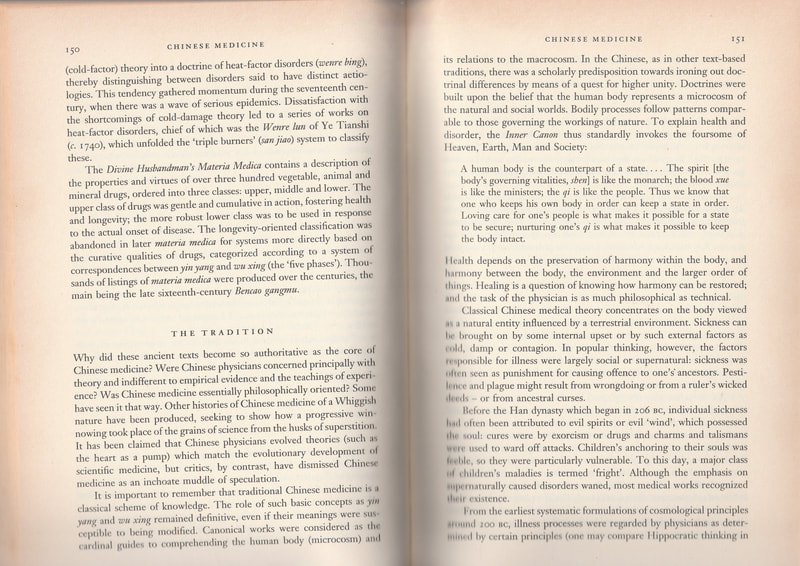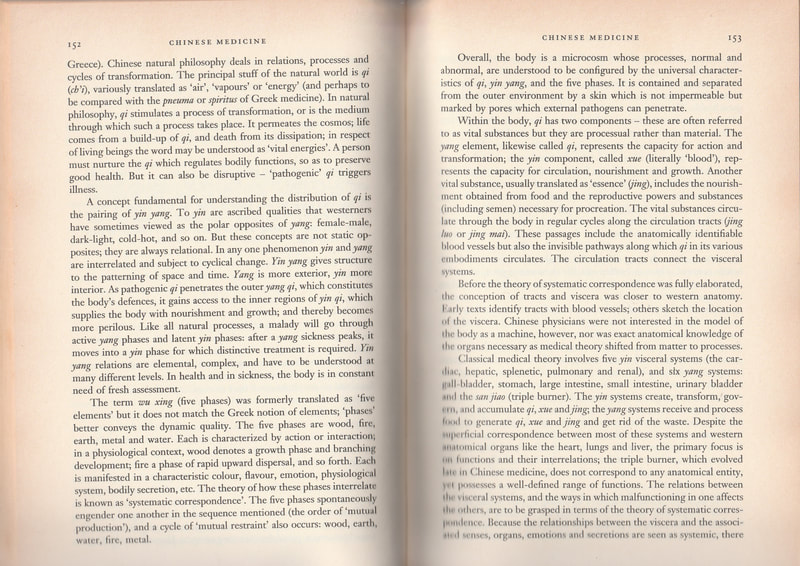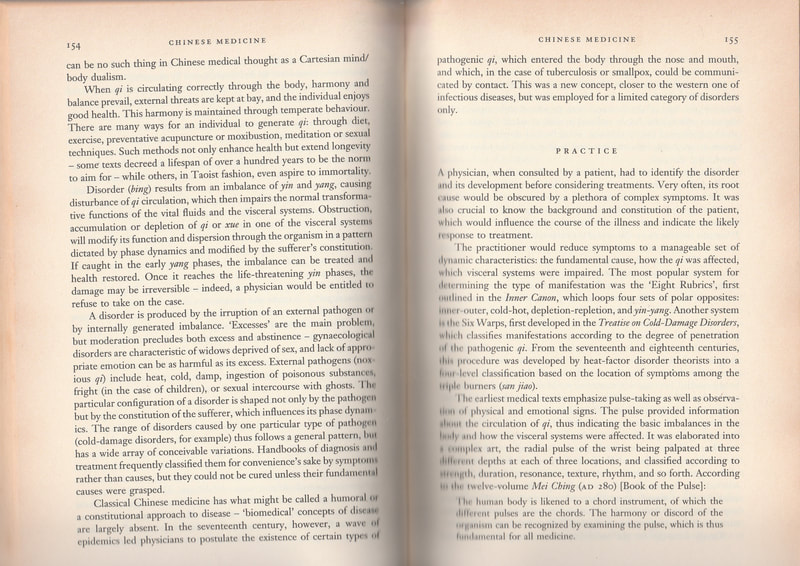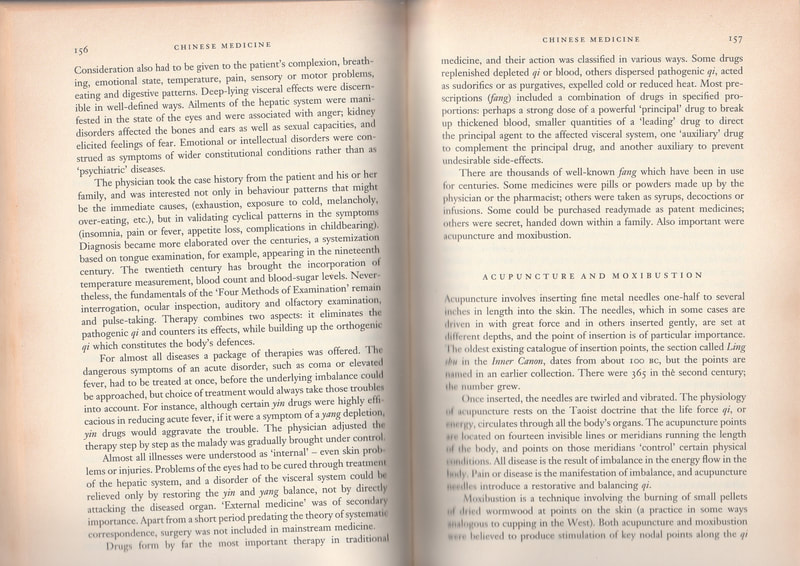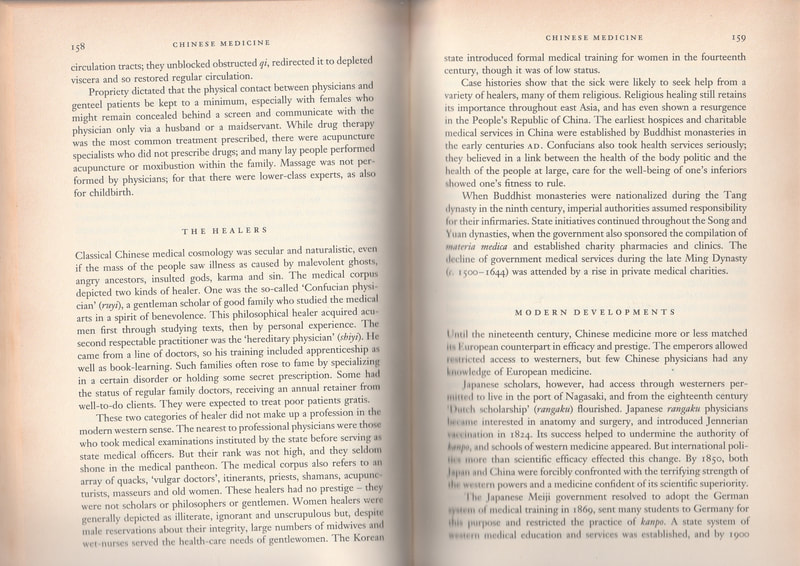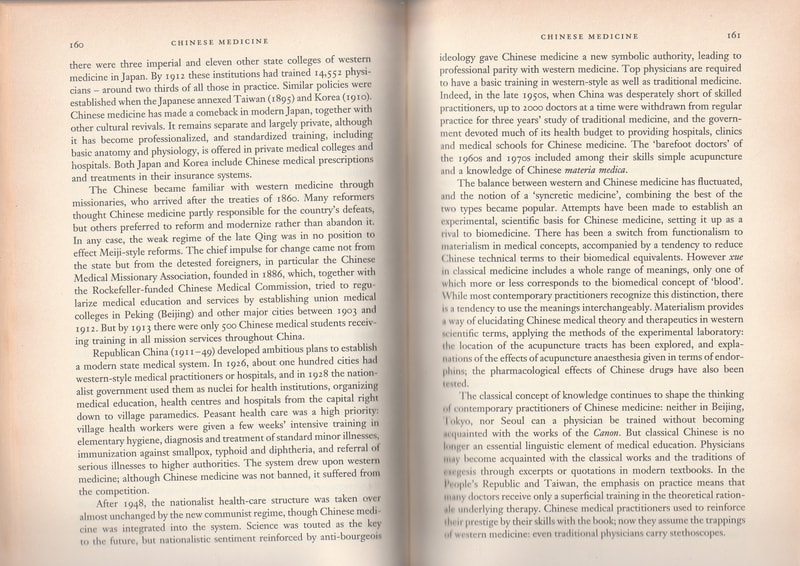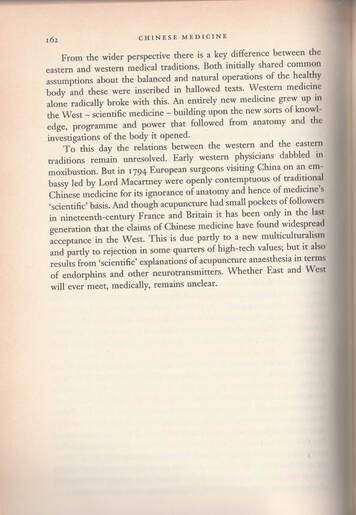Indian and Chinese Medicine
An Interesting couple of chapters examining the historical development of Indian and Chinese traditional medicine and the philosophies undermining these systems. It seems that Buddhist monasticism inspired the development of Ayurveda medicine, even though it is often presented as being a purely ‘Hindu’ development. Archaeology in India suggests that Buddhist monasteries in the 4th century BCE had ‘sick rooms’ for the treatment of monks, nuns and lay-people who were ill and/or diseased. Chinese medicine has no obvious historical connection with Indian medicine and is a powerful system in its own right, although Tibetan medicine may have been directly influenced by (Buddhist) Ayurveda. According to this research, Hindu philosophy has no corresponding interface with the practices of Ayurveda – even though today Ayurveda is passed on within the Hindu tradition. Of course, understanding medicine and performing healing are well-known and powerful Bodhisattva activities!
